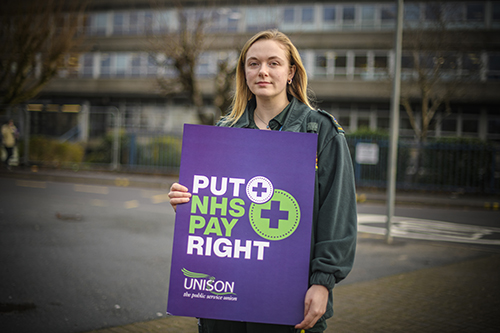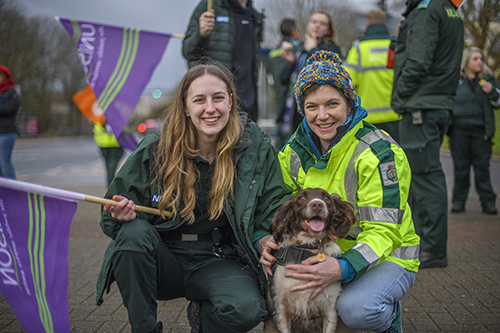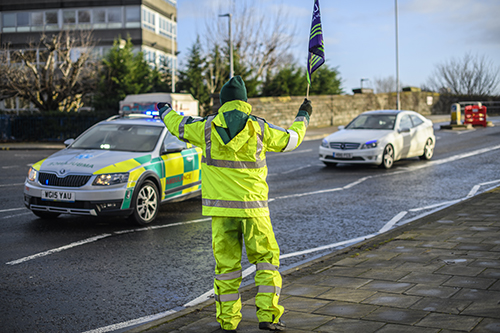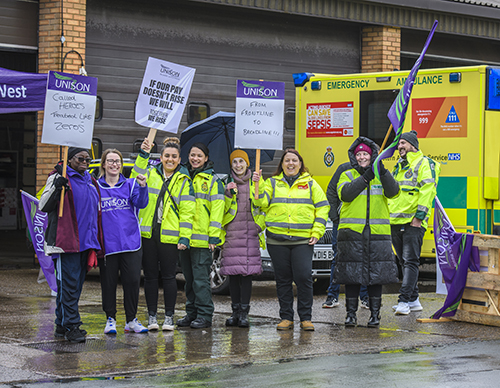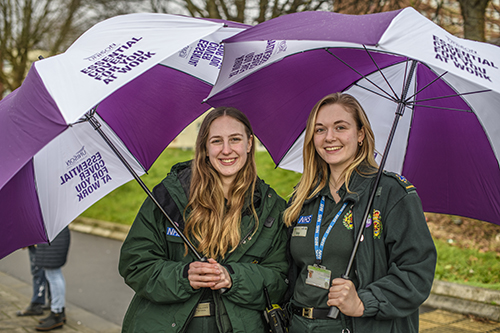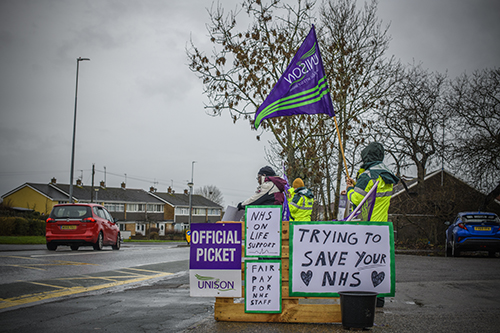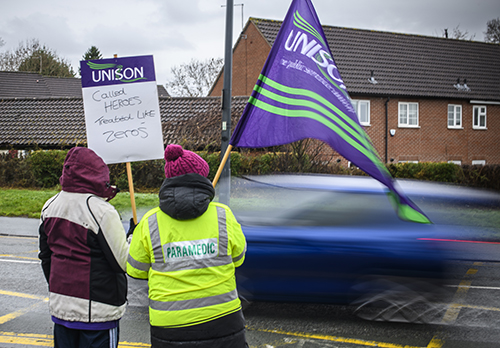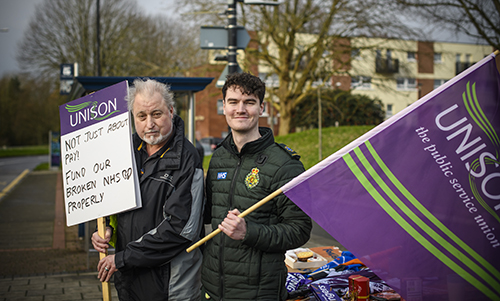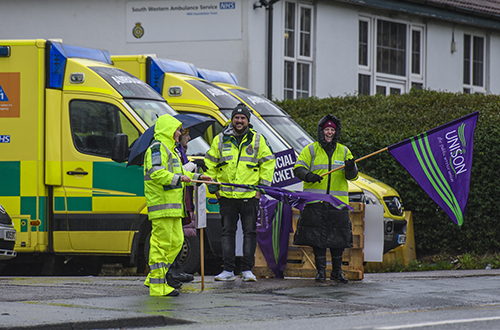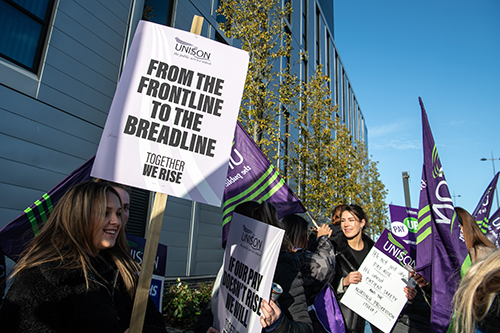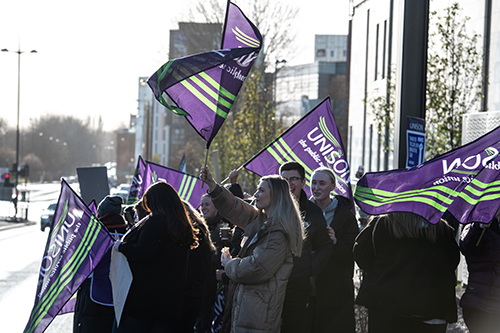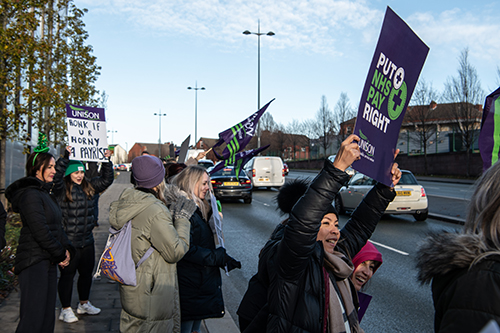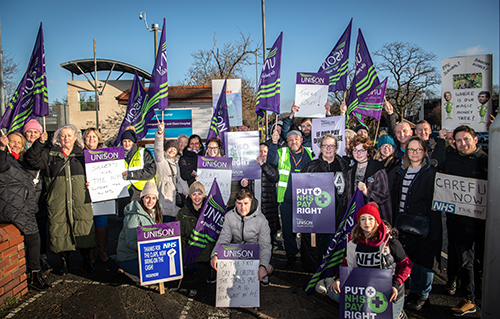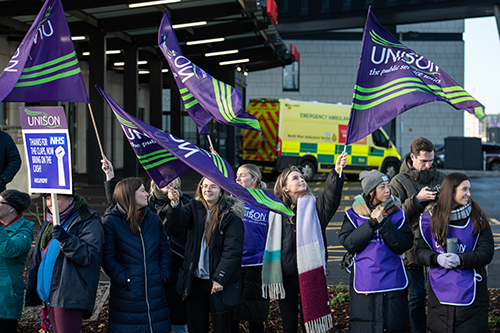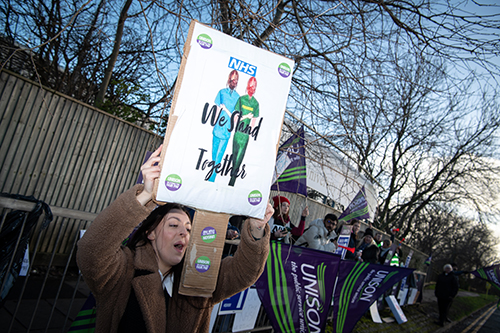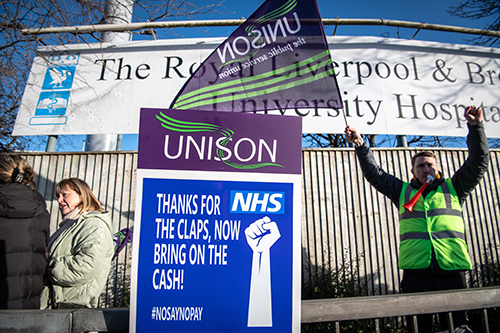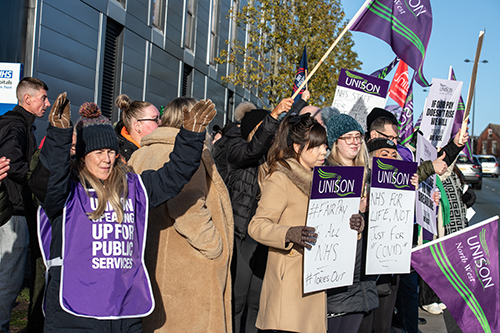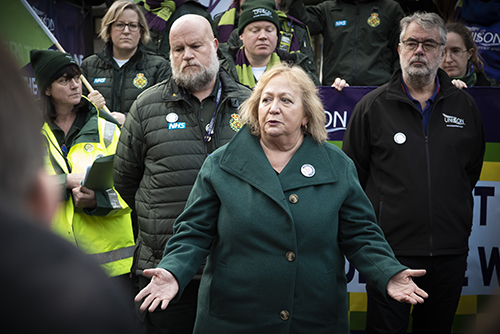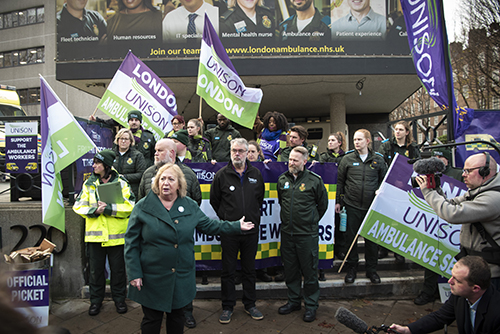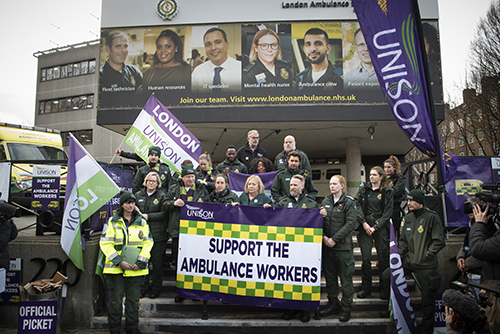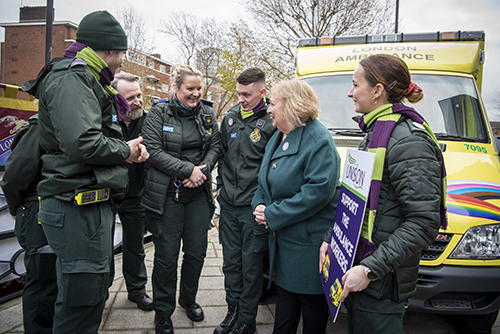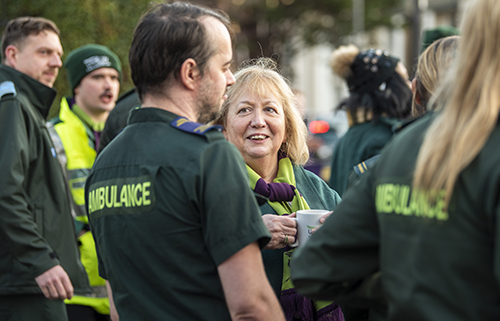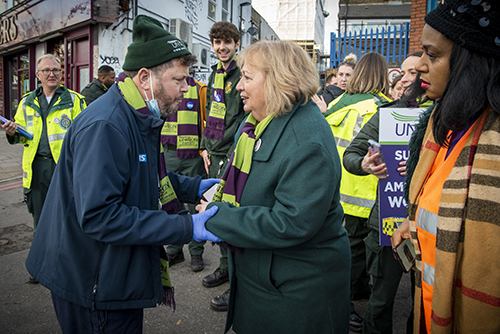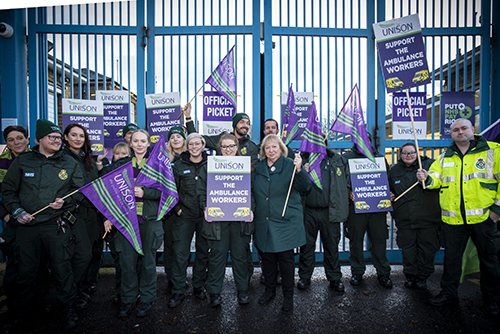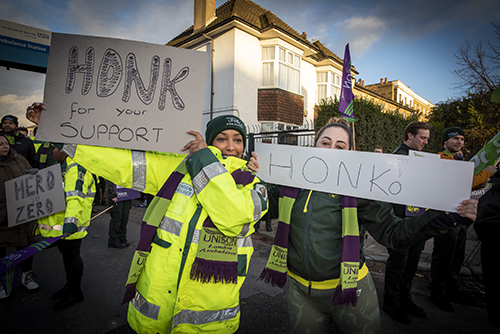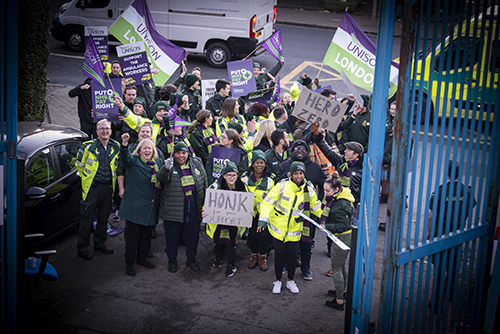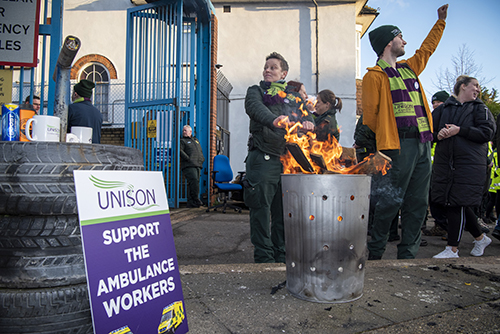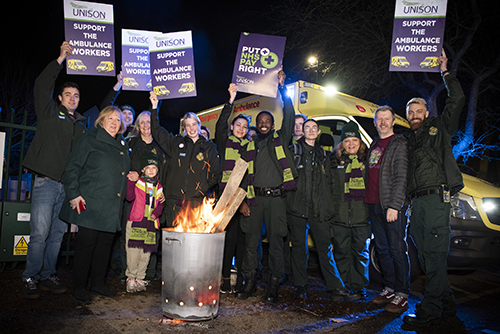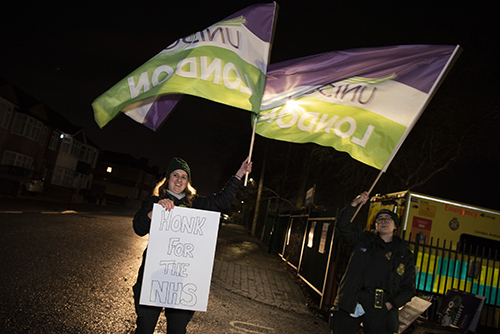Photos ©Steve Forrest/Workers’ Photos
Christina McAnea spent the second joint union NHS strike day, yesterday 11 January, touring picket lines in Yorkshire and the North East to show her support and solidarity for the striking ambulance workers.
She began the day in Sheffield at Longley ambulance station where, as they did across the county, paramedics walked out at 10am.
As the picket was set up, she spoke to the workers about why they were striking and, once the brazier was burning, addressed the strikers and the press who had gathered.
Speaking of the recent development where the secretary of state for health had acknowledged that, to deal with this crisis, the government would have to talk to the unions about pay for this year, rather than pay for the future, Christina said: “There’s been lots of speculation about what offer they might come back with, but nothing formal has been put forward yet, that’s why today’s strike has gone ahead.
“We have another strike planned for the 23 January, which gives the government about a week and a half to try and sit down with us and resolve this before we have to take another strike day.
“My door is always open and I’m happy to turn up at their door any time to talk to them about pay.”
She said that the move by the government to bring minimum service levels in during strikes was an “absolute distraction”, adding that it would mean then the NHS “would only have minimum staffing levels, when on strike.”
As though to illustrate the point, just before she began her speech, several members of the press were forced to move after two workers were called off the newly formed picket line and jumped in an ambulance to respond to an urgent call – as had been negotiated by the unions and employers in providing life and limb cover.
She continued, saying the move from the government shows it isn’t tackling the dispute, but is ”trying to take everybody’s eye off the ball and get us looking ‘over there’ instead of looking at what the crisis actually is”.
She finished by thanking the strikers, saying she knew “this is not what you want to be doing – you care about the patients and the public you look after, but you have our full backing from our union and my huge gratitude to you for the courage it has taken you to be here today”.


Photos ©Steve Forrest/Workers’ Photos
Rotherham
Christina then travelled to Rotherham and Wath ambulance station. There she met a long-serving patient transport service team with over 75 years experience between the three of them, Wendy, Michaela and John. They spoke, clearly emotional over the situation, about how their job has changed over those years.
Wendy said: “Years ago, we used to take patients home from discharge, we used tp make fires for them, make cups of tea or coffee, or get them bread and milk because they’ve got nothing in the house when they arrive back.”
Now the team can’t do that “because we’ve not got time, its job after job after job”.
John said: “We came into this job because we care about people. Now it feels like they’re taking that away from us. Sometimes we even take people home and have to lock them in the house. Which, to me, is not right.”
“We hate doing that,” Wendy added.
“They’re locked in, and they haven’t got the mobility to get to the door,” John continued. “God forbid if there’s a fire. We have to lock them in and put the key in the key safe so the carers can get in. But the carers might not be there for another three or four hours”.
On the degradation of relationships between colleagues, Wendy said, “A big thing is the camaraderie amongst us, there’s none of that because we’ve not got time for it, there’s no meeting up anymore”.
“The hospital used to provide us with a crew room, we could have a cup of tea and a bit of a chat,” said John. “Now we hardly see each other.”
Wendy finished by saying: “We used to love coming to work, but now it gets to Sunday night and I get anxiety, that’s where we’re at.”


Photos ©Steve Forrest/Workers’ Photos
York
Next stop was York ambulance station, a picket line where 999 call handlers were also striking. Call handlers had not walked out in the initial strike just before Christmas and across the region they were striking in batches to keep providing cover to protect patient safety.
Shortly after Christina arrived, they were called back in to provide cover, as another, larger call handling centre in Wakefield was readying to walk out.
Throughout the day there was strong support from the public, with one man coming up to the picket to thank the ambulance workers as the service had recently saved his wife’s life, as well as a number of other people who came to bring food and drinks to the strikers.
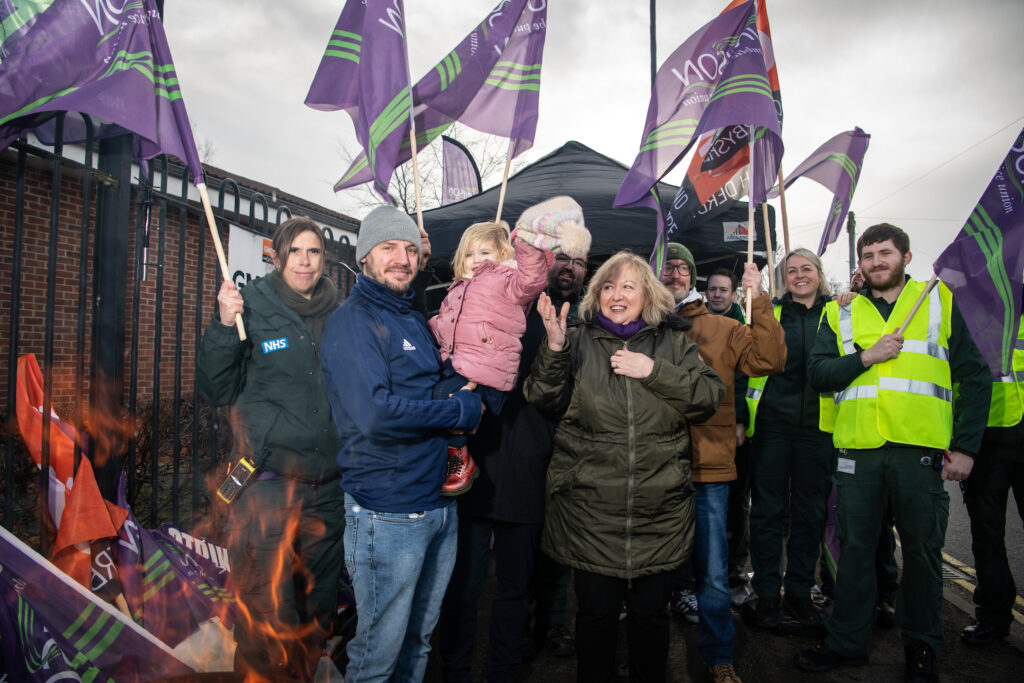
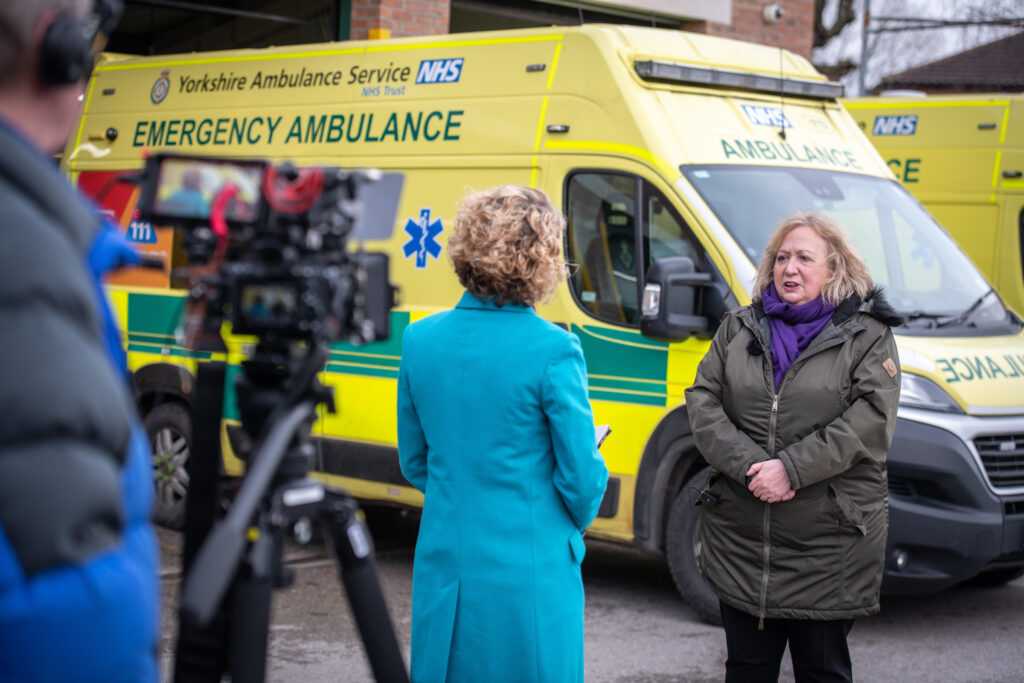
Photos ©Steve Forrest/Workers’ Photos
Chester-le-street
A train to Durham and a quick car ride saw Christina arrive at Chester-le-street and, by virtue of its position on a busy roundabout, the loudest strike of the day with drivers continually serenading the strikers and signalling their support by honking their horns.
There the general secretary was joined by Wilma Brown, chair of UNISON’s health service group executive, who had travelled down from Scotland to offer support, along with members of UNISON’s NEC, Helen Firman and Pat Heron.
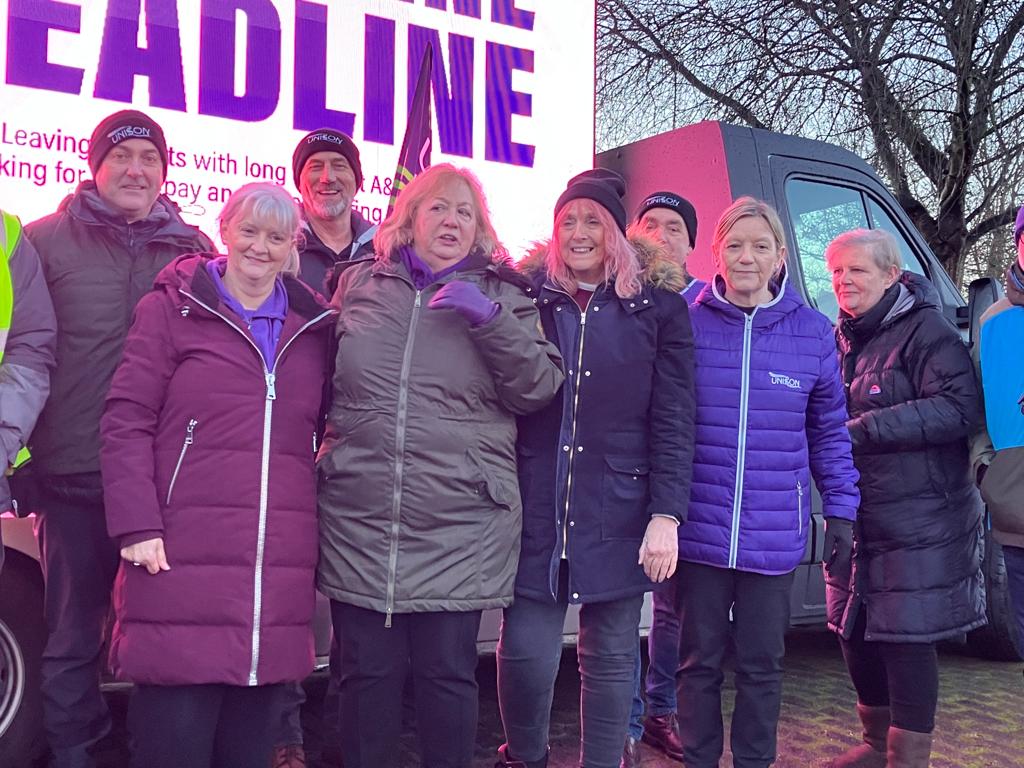
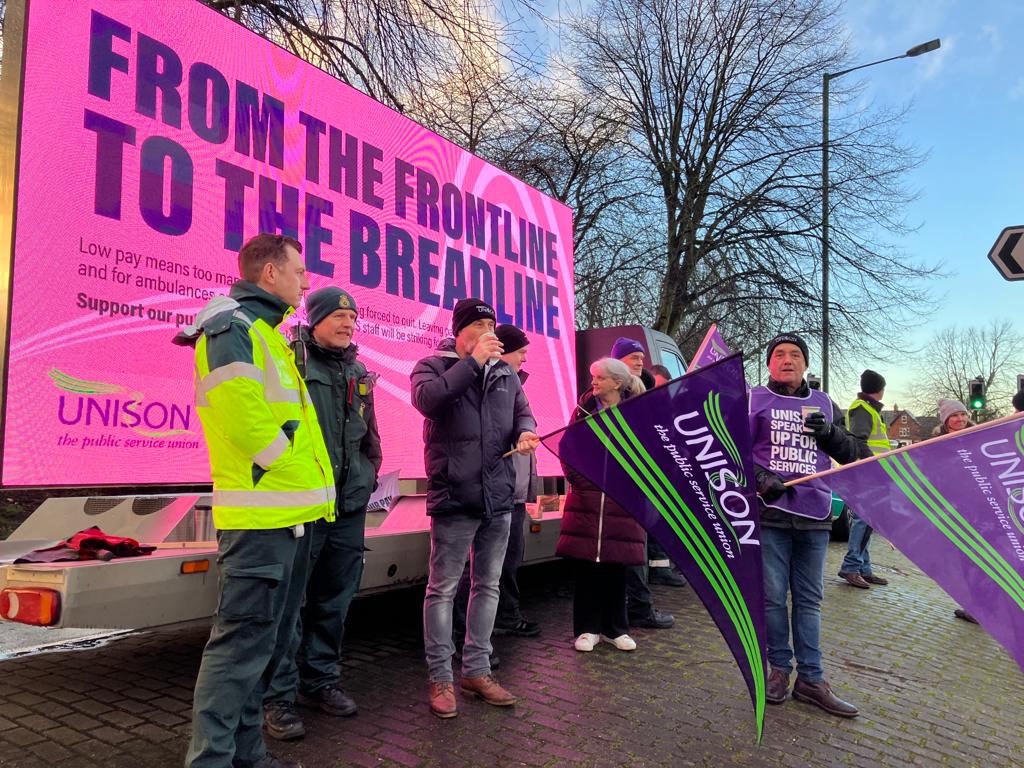
Gateshead
Christina finished her tour of the pickets in Gateshead ambulance station where the picket took place on the aptly named ‘Windy Nook Road’.
Speaking to a crowd of strikers she said: “It’s not the strikers putting the public at risk, its this government. We’ve been asking the government for six months to do something to resolve this and they’ve sat on their hands the whole time. It’s time the government did the grown-up thing and did something.”
She concluded by telling them: “You have the full support of our union and you absolutely have the public support. We are all hugely grateful to you and the work that you do.”
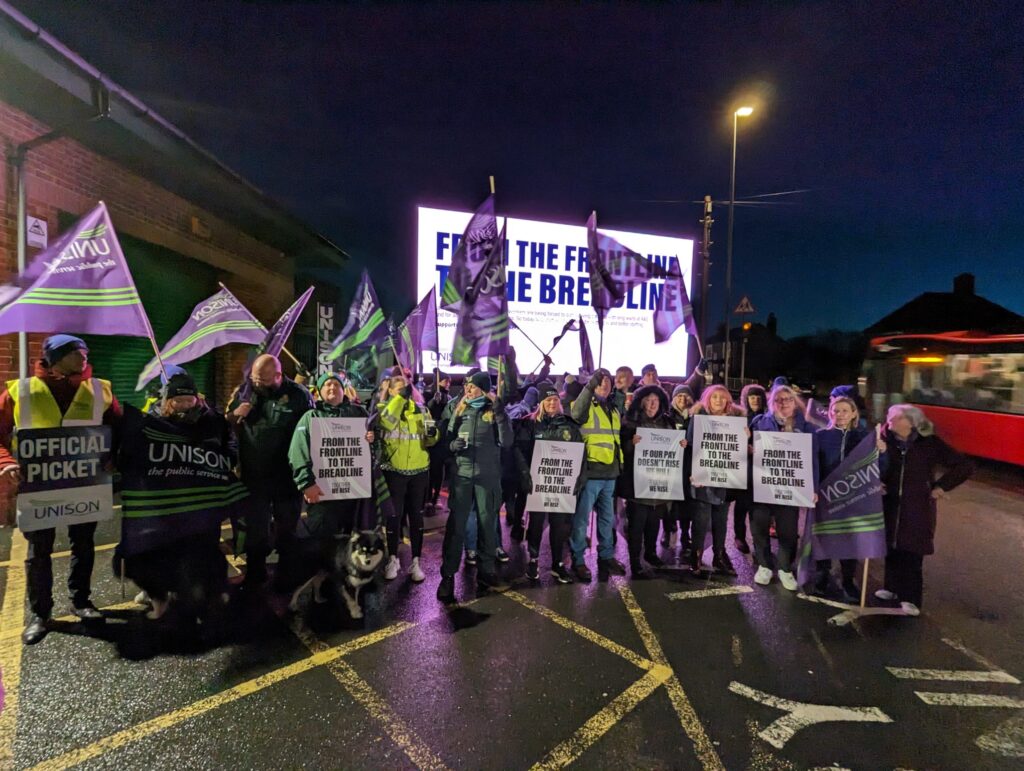
The article Christina McAnea tours pickets on second NHS strike day first appeared on the UNISON National site.
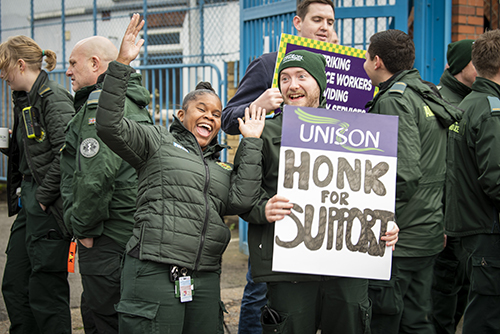
 Hospital workers in the North West are out on strike again today
Hospital workers in the North West are out on strike again today 












